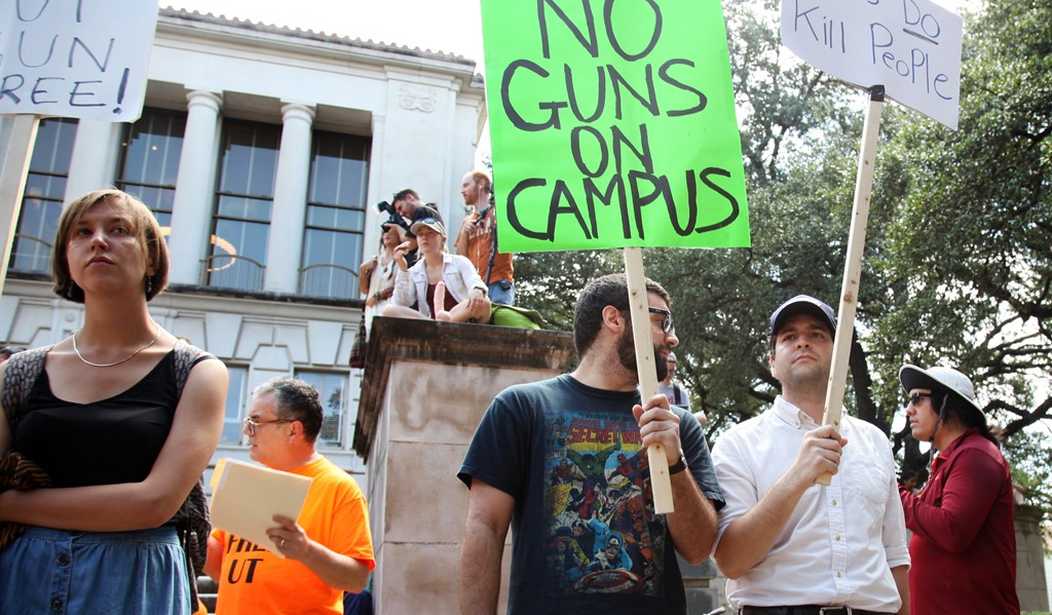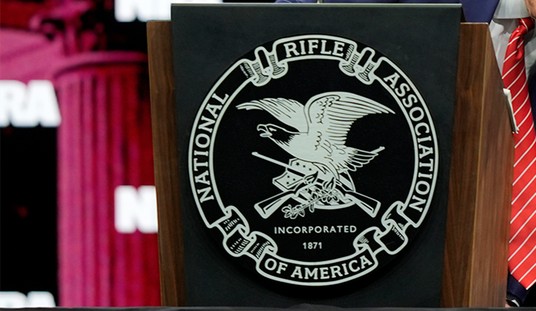Though the Dallas Morning News is in full pearl-clutching mode over the news, this is actually a positive development in the Lone Star State and frankly, long overdue. After a federal judge ruled that the state’s prohibition on lawful concealed carry for adults under the age of 21 was unconstitutional, the state of Texas decided not to defend the statute any longer. Instead, the Texas Department of Public Safety announced last month that under-21s would now be eligible for a carry license, and the Dallas Morning News reports that so far about 100 young adults not previously eligible have applied for their license… including a couple of teenagers who recently attended a concealed carry course in Austin.
“As more people find out, there’s going to be an influx,” said Cargill, who owns a gun store in Austin.
The change marks a major shift in Texas gun policy.
It’s legal for those under 21 to carry long guns like rifles and semi-automatic rifles in public without a license. But state law, even under GOP leadership, has barred adults under 21 from getting licensed to publicly carry handguns unless they’re in the military or have an active protective order.
Gun rights advocates applauded the change, saying 18-, 19- and 20-year-olds who can vote and die for their country should be able to exercise their Second Amendment rights. But Democratic lawmakers decried the move as one that makes the state more dangerous in the wake of several deadly mass shootings, including last May’s massacre at an elementary school in Uvalde.
The perpetrator of the attack on Robb Elementary wasn’t licensed to carry a concealed firearm, and clearly didn’t care what laws he was was violating when he senselessly murdered 21 people. But the DMN and the gun control advocates the paper spoke to are also hyperventilating over what the change means on college and university campuses across the state.
The change has sweeping implications. Now, a far larger swath of students are eligible for so-called campus carry, a contentious policy enacted in 2016 that allows license-holders to have concealed handguns at public universities.
The Dallas Morning News contacted several large university systems, but only the University of North Texas responded with a comment.
Laken Avonne Rapier, chief communications officer with the University of North Texas System, said the safety of students, staff and community is the No. 1 priority.
“We will continue to monitor and adhere to the laws and rights afforded to our community, while focusing on creating a safe and welcoming learning environment for all,” Rapier said in a written statement.
License-holders can also bring their guns into certain businesses and travel with them to other states, such as Oklahoma and Louisiana.
Sarah Kim, a second-year medical student in Houston who co-created a course for first-year students about firearm injury prevention, called the changes “really concerning.” She pointed to a high rate of firearm injuries and suicide among youth.
“This really isn’t a political concern; it’s a public health concern,” Kim said.
Giving young adults training and education on how to be responsible gun owners is a good thing, and much better than the abstinence-based approach of gun control activists. We’re also talking about a fundamental civil right here, and as the federal judge pointed out in his ruling declaring the state’s carry ban for under-21s unconstitutional, there’s simply no convincing evidence that young adults were historically kept away from exercising their Second Amendment rights.
Are law-abiding 18-to-20-year-olds a part of “the people” mentioned in the Second Amendment? As explained below, the Court concludes that they are. To start, the Second Amendment does not mention any sort of age restriction. This absence is notable—when the Framers meant to impose age restrictions, they did so expressly.
Instead, the Second Amendment refers only to “the people,” which various Founding-Era dictionaries define as a reference to those who make up the “national community.”
In accord with that understanding, Heller said that “the people” is a term of art that refers to “all members of the political community, not an unspecified subset.” Heller’s interpretation found support in an earlier decision, United States v. Verdugo-Urquidez, which considered the Fourth Amendment’s reference to “the people.” There, the Court interpreted the phrase to encompass those “persons who are part of a national community” or those who have “sufficient connection with this country to be considered part of that community.” And without challenging Heller’s interpretation, Bruen said it was undisputed that “ordinary, law-abiding, adult citizens are part of ‘the people’ whom the Second Amendment protects.”
With this guidance, the Court asks a simple question: are law-abiding 18-to-20-year-olds properly considered members of the political community and a part of the national community? The answer is yes. And based on that answer, the Court concludes that law-abiding 18-to 20-year-olds are a part of “the people” referenced in the Second Amendment. This conclusion is unsurprising: Heller stated that the “Second Amendment right is exercised individually and belongs to all Americans.”
Which is the real issue for anti-gun activists, most of whom are just as bothered by a 49-year-old professor carrying a concealed firearm as they are her 19-year-old student, whether on or off campus. It’s the right of the people to keep and bear arms that they want to eradicate, but they better get used to the fact that both the Constitution and tens of millions of Americans who’ve embraced their Second Amendment rights will keep getting in their way.
Want to improve the mental health of college-age Americans? I’m right there with you. Want to reduce the number of young adults committing violent crimes? I’m in complete agreement, and we can accomplish both of those tasks without infringing on anyone’s fundamental civil liberties… including responsible young men and women under the age of 21.









Join the conversation as a VIP Member